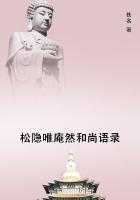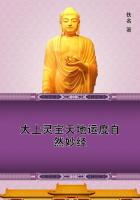There came a time when the lecturing which had been the joy of his prime became his loathing, loathing unutterable, and when he renounced it with indescribable violence. Yet he was always hankering for those fleshpots whose savor lingered on his palate and filled his nostrils after his withdrawal from the platform. The Authors' Readings when they had won their brief popularity abounded in suggestion for him. Reading from one's book was not so bad as giving a lecture written for a lecture's purpose, and he was willing at last to compromise. He had a magnificent scheme for touring the country with Aldrich and Mr. G. W. Cable and myself, in a private car, with a cook of our own, and every facility for living on the fat of the land. We should read only four times a week, in an entertainment that should not last more than an hour and a half. He would be the impresario, and would guarantee us others at least seventy-five dollars a day, and pay every expense of the enterprise, which he provisionally called the Circus, himself. But Aldrich and I were now no longer in those earlier thirties when we so cheerfully imagined 'Memorable Murders' for subscription publication; we both abhorred public appearances, and, at any rate, I was going to Europe for a year. So the plan fell through except as regarded Mr. Cable, who, in his way, was as fine a performer as Clemens, and could both read and sing the matter of his books. On a far less stupendous scale they two made the rounds of the great lecturing circuit together. But I believe a famous lecture-manager had charge of them and travelled with them.
He was a most sanguine man, a most amiable person, and such a believer in fortune that Clemens used to say of him, as he said of one of his early publishers, that you could rely upon fifty per cent. of everything he promised. I myself many years later became a follower of this hopeful prophet, and I can testify that in my case at least he was able to keep ninety-nine, and even a hundred, per cent. of his word. It was I who was much nearer failing of mine, for I promptly began to lose sleep from the nervous stress of my lecturing and from the gratifying but killing receptions afterward, and I was truly in that state from insomnia which Clemens recognized in the brief letter I got from him in the Western city, after half a dozen wakeful nights. He sardonically congratulated me on having gone into "the lecture field," and then he said: "I know where you are now. You are in hell."It was this perdition which he re-entered when he undertook that round-the-world lecturing tour for the payment of the debts left to him by the bankruptcy of his firm in the publishing business. It was not purely perdition for him, or, rather, it was perdition for only one-half of him, the author-half ; for the actor-half it was paradise. The author who takes up lecturing without the ability to give histrionic support to the literary reputation which he brings to the crude test of his reader's eyes and ears, invokes a peril and a misery unknown to the lecturer who has made his first public from the platform. Clemens was victorious on the platform from the beginning, and it would be folly to pretend that he did not exult in his triumphs there. But I suppose, with the wearing nerves of middle life, he hated more and more the personal swarming of interest upon him, and all the inevitable clatter of the thing. Yet he faced it, and he labored round our tiresome globe that he might pay the uttermost farthing of debts which he had not knowingly contracted, the debts of his partners who had meant well and done ill, not because they were evil, but because they were unwise, and as unfit for their work as he was. "Pay what thou owest." That is right, even when thou owest it by the error of others, and even when thou owest it to a bank, which had not lent it from love of thee, but in the hard line of business and thy need.














